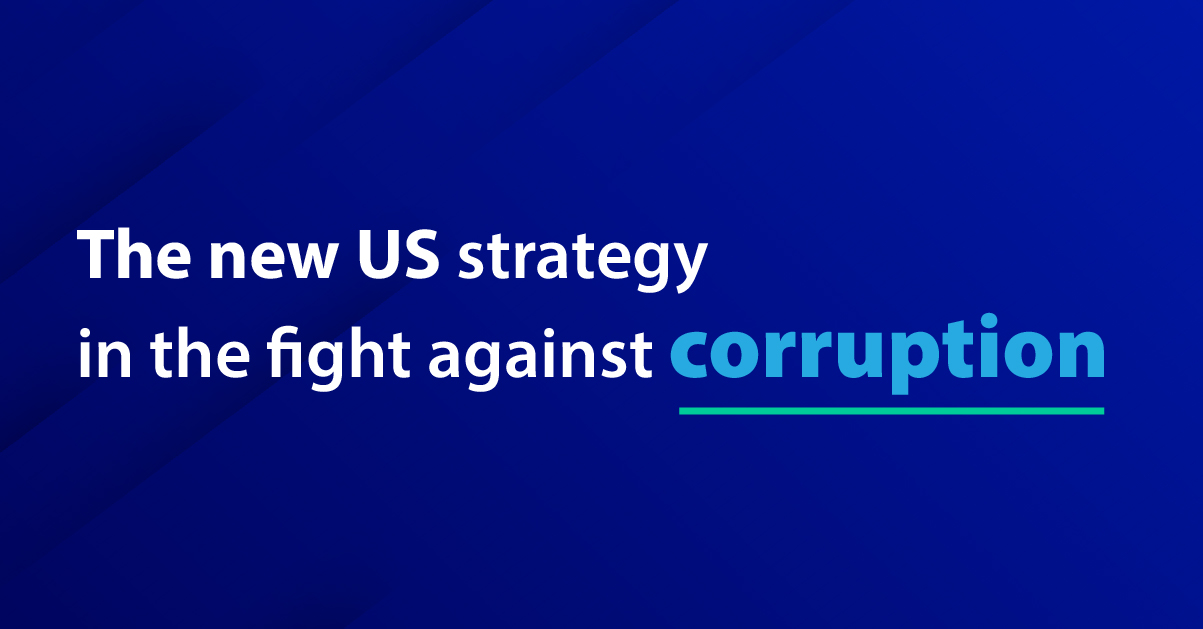By Federico Barrios
Director
Ethics & Anti-Corruption Specialist
Nicaragua
[email protected]
Through the publication in June 2021 of the National Security Study Memorandum (NSSM-1), the president of the United States, Joe Biden, recognized international corruption as a major risk to his country’s security due to its ability to erode democracy and the rule of law in nations of the world.
In response to this recognition, a working group was formed to devise a definitive and unified strategy focused on combating corruption on various fronts. The strategy itself is a summary of actions that have been implemented and new ones that would improve the global impact of the US government’s effort to attack this problem.
Integrating the application of the already well-known FCPA (Foreign Corrupt Practices Act), with new anti-money laundering regulations and the implementation of the Registry of Final Beneficiaries, as well as allocating criminal liability to foreign public officials who request or accept bribes, are just a few of the strategies expected to be implemented in the working group’s documentation.
In the formulation of the document, the following five fundamental pillars were identified.
- Modernize and coordinate efforts of the US government in the fight against corruption.
- Curb illicit finances.
- Assign responsibility to corrupt actors.
- Preserve and strengthen the multilateral anti-corruption architecture.
- Enhance diplomatic engagement and leverage foreign assistance resources to advance goals.
Under the first pillar, a new anti-corruption working group would be created within the Department of Commerce to work in conjunction with the newly formed anti-corruption working groups within USAID and the Treasury Department. These teams will benefit from an increase in the resources allocated to this fight. The exchange of information using intra-agency and intergovernmental intelligence techniques will be encouraged.
To stem the flow of illicit finances, the US is committed to reviewing deficiencies in its anti-money laundering system, including the activation of beneficial ownership registration in legal arrangements and real estate transactions. These efforts may include the implementation of regulations to require investment advisers to report suspicious activities, and the regulation of other professions necessary in the capital movement process, such as lawyers, accountants, trustees, and other private service providers.
To better identify and punish all those responsible in a corrupt relationship, efforts will be made to broaden the application of the FCPA and its relationship with money laundering (illicit proceeds from bribery). In addition, a pilot program for the recovery of assets from corrupt office-holders and their supporters will be carried out and the USAID global responsibility program will be improved.
The third pillar may be the one that most involves the business sector since one of its endeavors is to promote the adoption and application of anti-corruption compliance programs by US and international companies, as well as the inclusion of anti-corruption provisions in trade agreements.
Other efforts are aimed at improving the accessibility of and providing guarantees to those who unveil bribery, self-dealing, and other corrupt activities such as activists, journalists, and whistleblowers.
Perhaps the most promising feature of this strategy is that it marks the beginning of an action plan that identifies corruption as ongoing criminal activity that affects the economy, governance, and standard of living of both developing countries and economic powers, and mitigates global efforts in the fight against poverty.
Publication of the document marks a starting point that commits participants to monitor and self-regulate and file periodic reports on the results and scope of each line of action.
The next few months promise to bring interesting challenges to legal systems around the globe and compliance efforts among them. Latin America in particular, as part of the North American giant’s main sphere of influence, could be sorely tested.




